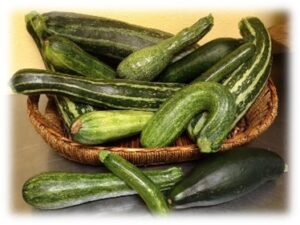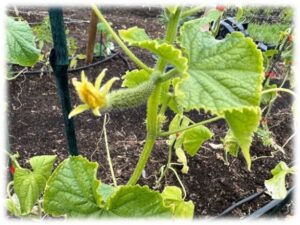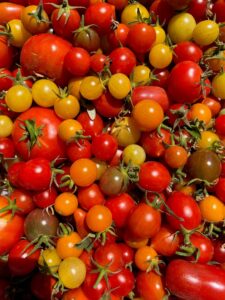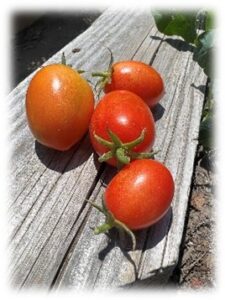Organic Farming is Important
IL Fiorello is double certified by CCOF (California Certified Organic Farmers) and Certified Naturally Grown.
C.N.G. is a cooperative farmer driven certification that covers our entire Farm. CCOF certifies our olive groves. Organic is a legal term defined by the FDA. But it really means that the farmer who is certified organic has a deep commitment to growing and to sustaining the earth. And importantly growing good healthy food.
The US Department of Agriculture has issued an S.O.E., Strengthening Organic Enforcement Act this year. This will close gaps in the current organic regulations and help build consistent certification practices to prevent fraud and improve the transparency and traceability of organic products. (Food Business News 2-28-2023). This new rule addresses traceability of organic food ingredients. This means that all components of “organic” food are really organic. We at IL Fiorello completely comply with this new law, and always have.
Our organic certification is valid proof that we respect organic growing and farm management. Our CNG also includes our bees, all 14 hives. It means that our bees are cared for in a sustainable practice. The honey that is produced represents our Farm -olive blossom and wildflower. No one can really call their honey organic because you cannot really control where the bees forage. They can forage for up to 3-4 miles. So, we keep our beehives as healthy as possible- clean hives, water sources and close observation for diseases.
According to the FDA and the University of Washington, organic food has over 12% higher levels or phytochemicals, carotenoids, and flavonoids, and equally importantly a significantly lower level of pesticides. At IFOOC we practice regenerative agriculture. What we take from the Farm, the olives and the fruits and vegetables, we give back to the Farm. The byproduct of making oil is mulched, composted, and put back on the Farm. Soil quality is paramount to any farming and especially to an organic Farm.
Know how your food is grown; talk to your farmer. National Geographic states there are three particularly important aspects to understand. 1) little or minimal tilling to not disturb the ground microculture 2) use cover crops to preserve the soil. 3)keep plants in the ground rather than leaving it fallow. This practice adds important nutrients to the soil and therefore adds nutrients to the vegetation that is grown in that soil.
We are growing a broad variety of tomatoes, cucumbers, peppers, ground cherries, and corn. As much as we can we are using all this produce on our From the Farm Menu. The highlight this month is blistered shishito peppers and shishito pepper crema. So delicious.
Walking through the garden is soul satisfying and peaceful. The hard work, exuberant growth, the smell of cut grass, tomato leaf, lavender, and dirt are honest.. The smell of newly watered soil is sweet, fresh, and life giving. Rich deep and memorable. My happiest time is in the groves and garden.

Soon we will be overrun with zucchini. Such a good problem to have. We are looking forward to making our famous zucchini tidbits. Always a favorite on our tasting plates. Zucchini needs help and the herbs from our garden are just the right pairing. Basil, sage, thyme, oregano, garlic, dill and fennel, long peppers, and sea salt. Held together with our fresh eggs from our girls, and bread made in house by our Chefs.
Did you know that cucumbers and melons are in the same family – Cucurbitaceae. The same with watermelons, melons, cucumbers, pumpkins, and squash. We have a lot of cukes – delicious with salt and eaten in the garden. A great snack. We have cukes called watermelon cucumbers, about the size of a quail’s egg, crunchy and fresh. Please try pickling them to preserve their flavor.

The abundance of a garden is astonishing and good for our olive farm. We share our produce with the quail who love tomatoes. They sneak in in the early morning and then scramble away in a panic.
My personal garden favorite is tomatoes. Nick, our Farm Manager, grew all our tomatoes from organic seeds. Five unique and different seed growers, and an incredible dedication to growing plants. We have over 50 different types of tomatoes from small current tomatoes to huge beefsteaks. Green, white, red, yellow, striped and some are dark blue. The plum tomatoes will become sauce for us to use throughout the year at Kitchen in the Grove. This is the beauty of having a garden. Sauté fresh tomatoes, a little garlic, basil, over fresh pasta – a perfect summer dinner. Fast and delicious.


Our tomato class in August will have tomato tasting, growing practices, recipes, and tomato tini. We will demonstrate how to make a yellow tomato spread to serve on toasted bread and drizzled with olive oil.
Buy good vegetables, talk to your farmers. Eat in color, lots of fruits and vegetables, and enjoy good health. Make a concerted effort to eat organic food.
Ciao,
Ann
